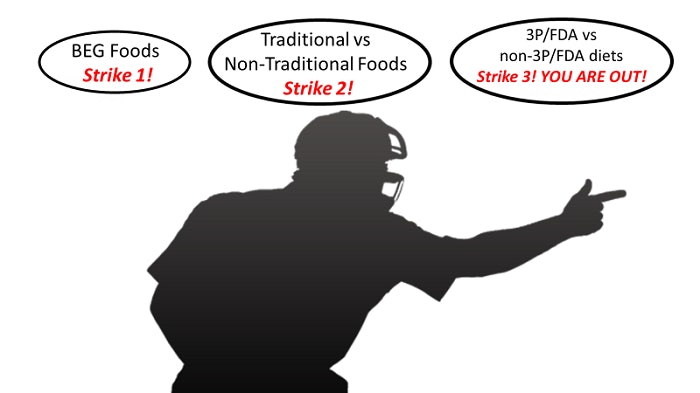New Study Adds Fuel to DCM and Grain-free Dog Food Controversy
- Jennifer Boncy
- Mar 10, 2021

Shuttersock
DCM and grain-free foods—here we go again.
A
study published in the Journal of Veterinary Internal Medicine in December 2020 seems to demonstrate that dogs with dilated cardiomyopathy (DCM) that were consuming “nontraditional dog foods—namely, grain-free diets—were more likely to show signs of significant improvement in cardiac function if put back on “traditional” diets, along with being treated with heart medications.
So, it’s not an outright indictment on grain-free dog foods, but certainly not an endorsement.
The study follows the U.S. Food & Drug Administration’s (FDA) investigation of a suspected correlation between grain-free dog foods and instances of canine DCM, and adds a new wrinkle to what has become a quagmire for pet specialty retailers and pet food manufacturers who are trying to do right by their customers.
Since the FDA has raised the question of a potential link between DCM and grain-free foods—particularly diets formulated with legumes or pulses to replace the grains—others in the scientific community are also taking a closer look and adding their findings to a growing well of research on the topic.
However, it was only a few months ago that Pet Product News (PPN)
reported that an FDA official acknowledged during a virtual scientific forum hosted by Kansas State University (KSU) in late September that there is no clear evidence indicating that grain-free foods with pulse ingredients are inherently dangerous for dogs and conceded that the “complex scientific messaging” was often lost in translation in the media.
And back in July,
research published in the Journal of Animal Science—backed by veterinarians, veterinary cardiologists and animal nutritionists from BSM Partners, a pet care research and consulting firm—concluded that there is no definitive link between DCM and grain-free diets, a conclusion that we said came as no surprise to many industry insiders.
The news gave us perhaps a little hope—maybe false—that any concerns about the health impacts of grain-free diets would soon fall to the wayside.
So what impact will this new study have on anyone’s understanding of the issue?
It’s hard to say, and it’s probably most accurate to portend that our understanding of any potential link—or the absence thereof—will continue to evolve as more independent researchers reveal new findings and as the FDA continues its investigation. The one thing everyone seems to be in agreement on is that more research is still needed.
In the meantime, this new study may amplify concerns that, at the very least, pet foods that contain typical grains and not pulses—referred to by the researchers as traditional foods—may be better suited for dogs that have DCM or that may be predisposed to the condition than grain-free pet foods containing pulses, or nontraditional foods.
The study was funded by the Barkley Fund—a funding arm of Tuft University’s Cummings School of Veterinary Medicine, which aims to improve the care of animals with heart disease by supporting clinical investigations, teaching and learning—and was conducted by researchers from the department of clinical sciences at Cummings that included: Kimberly J. Freid, Lisa M. Freeman, John E. Rush, Suzanne M. Cunningham, Megan S. Davis, Emily T. Karlin and Vicky K. Yang.
The study reviewed the medical records of dogs diagnosed with DCM between Jan. 1, 2014, and Sept. 30, 2018, and grouped dogs into “traditional” or “nontraditional” diet categories and whether or not diet was changed after diagnosis. While the researchers did conclude that dogs with DCM that had been eating nontraditional diets improved at a greater rate when put back on traditional formulas, they also conceded that more research was needed to examine a possible link between the heart condition and diet.
Also, in their declaration of conflict of interest, two of the researchers—Freid and Rush—disclosed connections to pet food companies such as Hill’s Pet Nutrition, Nestlé Purina, Royal Canin and Mars—whether it was in the form of sponsored lectures or some sort of professional services.
Again, it’s hard to weigh the impact of this study yet, and it may be even tougher for some in the pet industry to know how to advise confused pet owners on how to feed their pets. So in essence, nothing much has changed—pet retailers and manufacturers need to stay abreast of the new research as it develops, and not necessarily make any knee-jerk responses as we all await the definitive answers we seek.
For more on PPN’s coverage of DCM, read:



